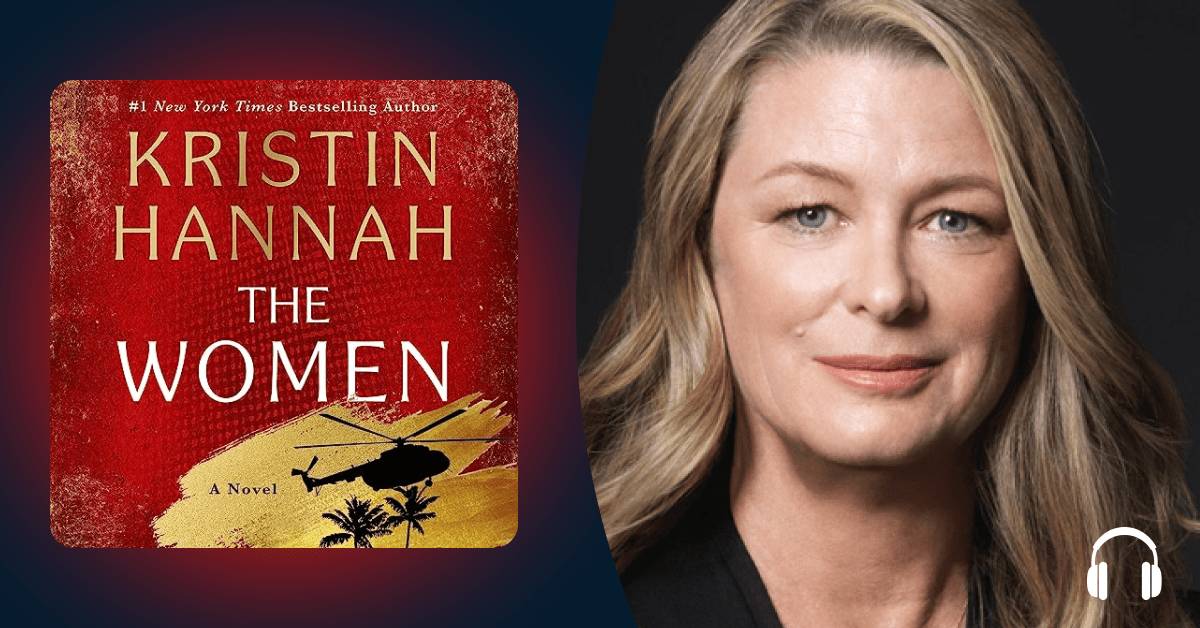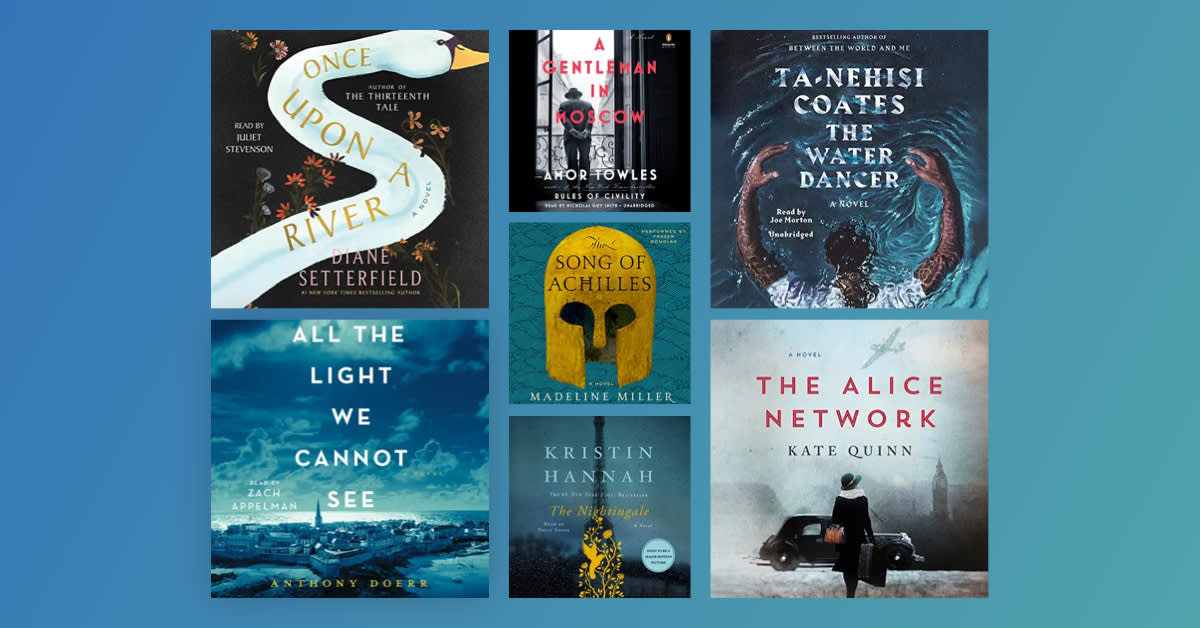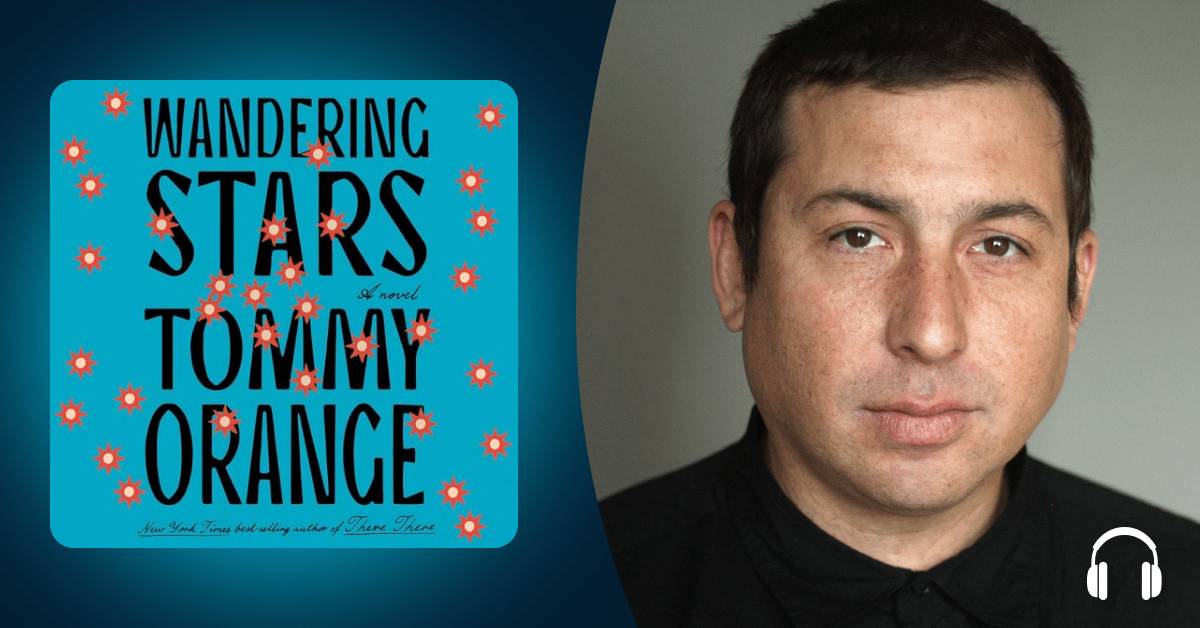Allegra Goodman writes stories that consume you—her previous novel, Sam, enraptured one of our editors to the point that she canceled her weekend plans to finish it, then headed to the author’s next speaking engagement so she could tell her in person how much it moved her.
That kind of talent doesn’t come along often, so we had our earbuds at the ready for Goodman’s latest, which in many ways is a departure from Sam—but in its deep meditation on its central character and exhilarating emotional and philosophical depth, the two are closely entwined. Isola is a historical novel based on the true story of Marguerite de La Rocque, a 16th-century French noblewoman who was left stranded on a small island with her lover and who must find a way to survive the winter cold with next to nothing. Beautifully narrated by Fiona Hardingham and, for the author’s note, Goodman herself, Isola is a feminist tale of love, faith, and what it takes to survive and thrive. Here, Goodman unpacks her inspirations and the true story behind the novel.
Kat Johnson: Your new book is based on the extraordinary true story of the French noblewoman Marguerite de la Rocque. How did you first encounter the real Marguerite’s story, and how and when did that become the basis for your book?
Allegra Goodman: I stumbled upon Marguerite's story 22 years ago while taking a family road trip to Montreal. I'd checked out a stack of children's books on Canadian history to share with my sons, then 10, 7, and 3—but they didn't read them. I was the one who read them all while nursing my daughter, a newborn, in the middle of the night. The author of a book about explorer Jacques Cartier mentioned Marguerite offhand, literally in parentheses. I paraphrase here, but basically he said—on the third voyage a young noblewoman in a ship of colonists annoyed her kinsman the commander and he marooned her on an island in the Gulf of St. Lawrence. I read that and said, "Wait! What?" And I thought, "Now that would be a great story to tell." It took me a while to do it, but here I am now with Isola.
How did you balance the research and writing of the novel—did the research come first, or were they intertwined? Was there a particular avenue of the research that really got your curiosity going?
I did a lot of reading before I started writing. I was writing other novels, and I started looking into this story slowly. I spent a few years reading about France and chateaux and daily life in the Renaissance. I read the two 16th-century accounts of Marguerite's ordeal and noticed that they conflicted. There was no definitive story of her life, and all accounts of her adventure were brief. Let's just say the historical record is scanty. This meant I had space as a novelist to imagine Marguerite's story. I loved that she was a real person and I was fascinated by her adventure. She seemed to me like a female Robinson Crusoe. That classic book is one I read as a child and read aloud to my own children. I reread it while thinking about Marguerite.
Eventually, after reading and writing lots of notes and doodling, I could not resist writing this novel. I was already writing my contemporary, very American novel Sam, but I began writing Isola at the same time. I'd work on Sam in the mornings, and then time-travel to write Isola in the afternoons. I'd never imagined writing two novels at once, but I had been thinking so long about Marguerite that I couldn't stop myself. If you are an audiobook lover you know that a great voice can capture your imagination. Well, if you are a writer, it works that way too. I began to hear Marguerite speak to me—but I was nervous about writing a story set so long ago. I didn't tell anyone about this project and I started by writing by hand in a notebook. I called the novel Project M—because I had no title and I didn't know if it would become a book. However, line by line, as I wrote, I heard Marguerite's voice coming through stronger, and my confidence grew. While writing, I kept reading and thinking about her world. I continued doing research, but I had a good foundation, and many years of dreaming to draw upon.
Here at Audible we are big fans of your last novel, the Rebecca Lowman-narrated Sam. Sam and Marguerite seem to share some similarities, not least because these novels allow you to deep-dive so intimately into their psyches. How did Sam lead to Marguerite, if she did? And what did each of these characters have to teach you?
Writing Sam opened a door for me. Sam is a young girl growing up in the 21st century on the North Shore of Massachusetts. I wrote her story in a close, intimate third-person point of view. The reader is always inside her, seeing what she does, feeling what she feels. Writing in that intimate way prepared me for the first-person narrative I use in Isola. Equally important, Sam is a boulderer. She grapples with bouldering problems in the gym and in nature. As I wrote about Sam clambering on the rocks, I was able to envision Marguerite on her island, coming up against physical as well as emotional and spiritual challenges. Sam and Marguerite are survivors. They struggle but they do not give up. These characters taught me a lot about moving forward, enduring difficulties, and using frustration as fuel.
Can you share any favorite books, whether in audio or print, that you’ve been loving lately and/or any longtime favorites you think more people should know about?
I love both print and audiobooks. If I particularly love reading a book, I like to listen to it, because I hear new things in the performance. Jane Austen, for example, is an author I have read and reread and also heard on audiobooks. Juliet Stevenson is my favorite Austen narrator. Stevenson is also my go-to for George Eliot. Her reading of Middlemarch is masterful. Yes, I like to listen to long audiobooks, especially in the car. My all-time favorite audiobook is Don Quixote read by George Guidall. I highly recommend it. Don Quixote was a print book I never finished because it's so long and discursive. I had no trouble finishing it as an audiobook. I found Guidall's performance hilarious and touching, altogether captivating.
Can you share any details on the backstory or process around the audiobook production? We’d love to hear any of your favorite highlights!
My publisher allowed me to listen to clips of different narrators and to consider which voice sounded like Marguerite. I was drawn to Fiona Hardingham's expressive voice and delighted to hear that she was available. I love the way she reads Isola. She sounds like a noblewoman and she sounds like a castaway and she sounds like someone who has really been through it.
For my own contribution, I went into a studio in Boston to read my brief author's note. Through my headphones I could hear the voice of an encouraging producer in LA. Recording was a celebratory full-circle moment. I'd been writing Marguerite's story for such a long time. Now I had a chance to step out of character and add my author's voice to the end of the novel.

Allegra Goodman in the studio, recording her author's note for Isola.








